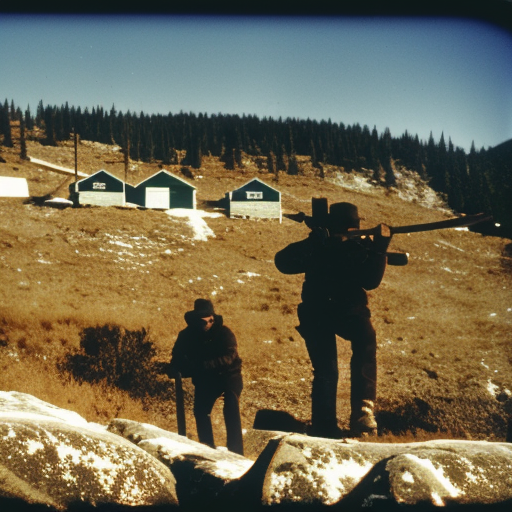Newfoundland Loggers’ Strike: A Struggle for Workers’ Rights
The Newfoundland Loggers’ Strike was a significant labor dispute that took place in Newfoundland, Canada, from 1959 to 1960. The strike was a response to poor working conditions, low wages, and the lack of union representation for loggers in the province. It marked a turning point in the history of labor rights in Newfoundland and had a lasting impact on the forestry industry.
The Context: Newfoundland’s Forestry Industry
In the mid-20th century, the forestry industry played a crucial role in Newfoundland’s economy. Logging was a dangerous and physically demanding occupation, with loggers facing long hours, low pay, and hazardous working conditions. The absence of a strong union presence meant that loggers had little bargaining power and were often subject to exploitative practices by employers.
The Formation of the International Woodworkers of America (IWA)
In the late 1950s, loggers in Newfoundland began to organize and advocate for better working conditions. They sought the support of the International Woodworkers of America (IWA), a powerful union based in the United States. The IWA had a reputation for successfully negotiating improved wages and working conditions for loggers in other regions.
The Strike Begins
On January 11, 1959, loggers across Newfoundland went on strike, demanding higher wages, safer working conditions, and the recognition of the IWA as their representative. The strike quickly gained momentum, with thousands of loggers participating and effectively shutting down the forestry industry in the province.
Violence and Intimidation
The strike was met with resistance from both the employers and the government. Companies hired replacement workers and attempted to break the strike by any means necessary. Violence and intimidation tactics were employed against striking loggers and their families. Many strikers faced threats of job loss, eviction, and physical harm.
Public Support and Solidarity
Despite the challenges, the loggers received significant public support. The strike drew attention to the poor working conditions and low wages in the forestry industry, leading to widespread sympathy for the loggers’ cause. Solidarity rallies and fundraising events were organized across the province and beyond, providing financial and moral support to the striking workers.
Negotiations and Resolution
After months of negotiations, the strike finally came to an end on September 15, 1960. The loggers achieved several significant victories, including improved wages, safer working conditions, and the right to union representation. The IWA was recognized as the official bargaining agent for loggers in Newfoundland.
Legacy and Impact
The Newfoundland Loggers’ Strike had a lasting impact on labor rights in the province. It paved the way for improved working conditions and better wages for loggers, setting a precedent for future labor disputes. The strike also highlighted the importance of collective bargaining and union representation in protecting workers’ rights.
Conclusion
The Newfoundland Loggers’ Strike of 1959-1960 was a pivotal moment in the history of labor rights in Newfoundland. It brought attention to the exploitative working conditions faced by loggers and led to significant improvements in wages, safety, and union representation. The strike demonstrated the power of collective action and solidarity in achieving meaningful change for workers.












